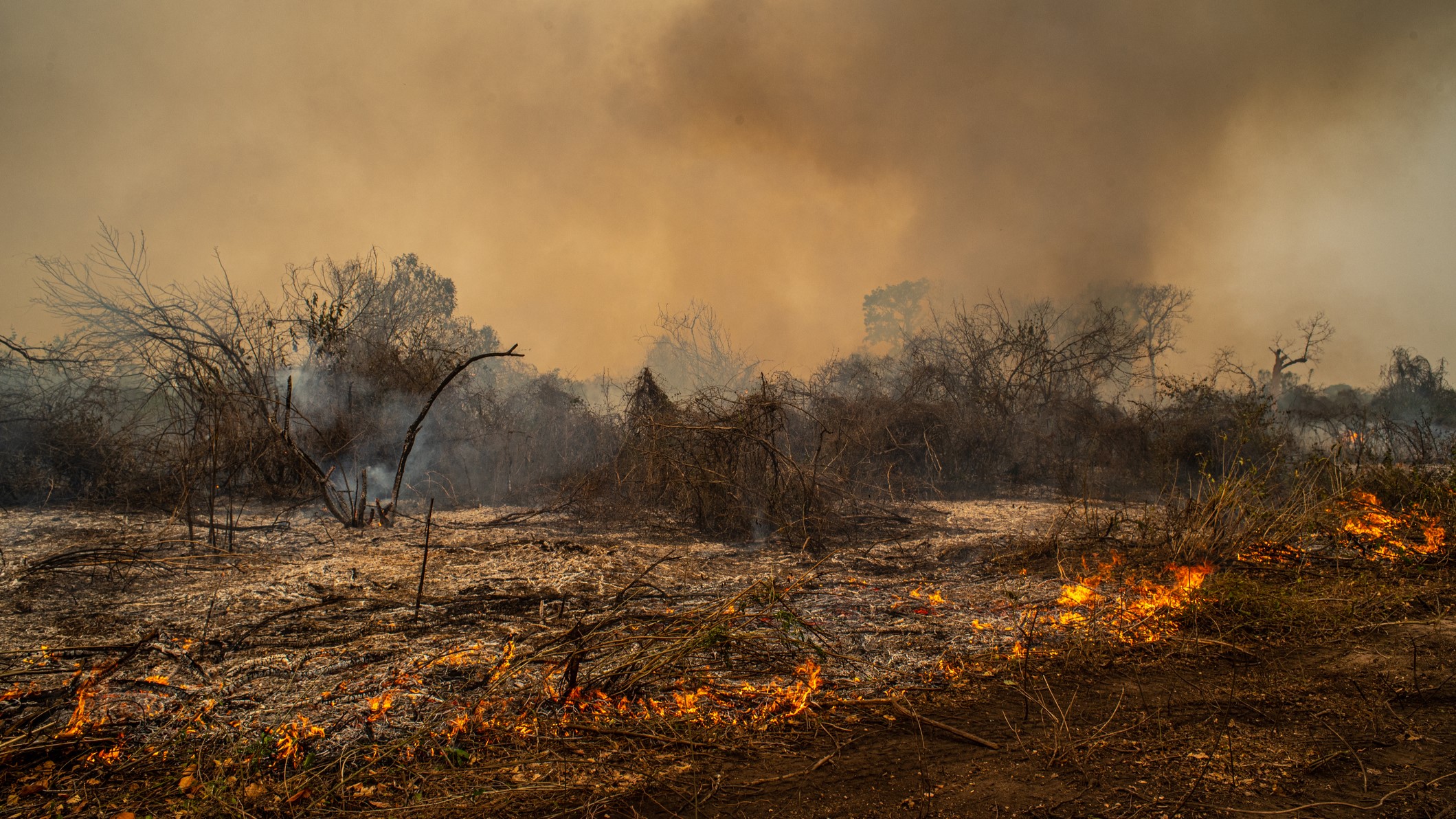
Global temperatures will soar to 3.1 degrees Celsius (5.6 degrees Fahrenheit) above preindustrial levels by 2100 if governments don't set more ambitious climate targets, a new United Nations (U.N.) report warns.
Warming on this scale is more than twice the 1.5 C (2.7 F) target outlined in the 2015 Paris Agreement — a legally binding treaty on climate change adopted by 196 countries — and would plunge the world headlong into climate disaster.
Current levels of human-induced warming are about 1.3 C (2.3 F) above preindustrial levels, meaning we could reach 1.5 C in less than a decade, according to the U.N.'s annual Emissions Gap Report, which highlights the gap between countries' commitments and the cuts in greenhouse gas emissions needed to prevent climate breakdown.
"We are teetering on a planetary tightrope," U.N. Secretary General António Guterres said in a speech following the publication of the report on Oct. 24. "This report shows annual greenhouse gas emissions at an all-time high, rising 1.3% last year. They must fall 9% each year to 2030 to limit global temperature rise to 1.5 C and avoid the very worst of climate change."
Related: Michael Mann: Yes, we can still stop the worst effects of climate change. Here's why.
Global greenhouse gas emissions reached 63 gigatons of "carbon dioxide (CO2) equivalent" in 2023, which is 0.8 gigaton — or 1.3% — higher than 2022 levels, according to the report. (A gigaton is equivalent to 10,000 fully-loaded U.S. aircraft carriers, according to NASA, and CO2 equivalent is a metric that takes into account the potential warming effects of different greenhouse gases.) This rate of increase exceeds rates observed before the COVID-19 pandemic between 2010 and 2019, when growth averaged 0.8% year over year. The new spike in emissions reflects a return to pre-pandemic levels of activity in the industrial and transport sectors.
Hopes of keeping the 1.5 C target alive depend on countries collectively cutting yearly greenhouse gas emissions by 42% before 2030 and then by 57% before 2035, the report said. But current pledges for future action are not drastic enough to mitigate the worst effects of climate change.
"There is a direct link between increasing emissions and increasingly frequent and intense climate disasters," Guterres said. "Around the world, people are paying a terrible price."
The report's findings come two weeks before the annual U.N. Conference of the Parties (COP) climate summit on Nov. 11 to Nov. 22 in Baku, Azerbaijan. Leaders from around the world will gather to build on an agreement made last year to transition away from fossil fuels, and many hope these negotiations will lead to more ambitious, country-specific climate targets.
"If we look at the progress toward 2030 targets, especially of the G20 member states … they have not made a lot of progress toward their current climate targets for 2030," Anne Olhoff, chief climate adviser at the U.N. Environment Programme (UNEP) and chief scientific editor of the new report, told Reuters. (The G20 is a forum for the world's largest economies.)
The report refers to individual countries' climate targets as "Nationally Determined Contributions (NDCs)." The Paris Agreement requires NDCs to be updated every five years, and the next deadline is coming up in February 2025.
"Today's report shows affordable, existing technologies can achieve the emissions reductions we need [by] 2030 and 2035 to meet [the] 1.5 C limit, but only with a surge in ambition and support," Guterres said.
Inger Andersen, the U.N. under-secretary-general and executive director of the UNEP, urged countries to take the upcoming COP29 conference as inspiration for bold action. "Every fraction of a degree avoided counts," Andersen told Reuters.







